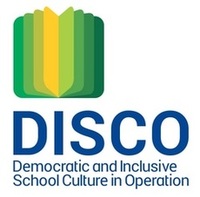REDE Resilience Through Education for Democratic Citizenship (2020-2021)
The project Resilience Through Education for Democratic Citizenship (REDE) was selected from over 70 international submissions as one of three projects for funding by the DISCO (Democratic and Inclusive School Culture in Operation) programme of the Council of Europe and the European Commission. From July 2020 to November 2021 REDE collected, discussed and improved methods of strengthening democratic culture, democracy education, human rights education and the skills of social and youth workers to prevent anti-democratic extremism, conspiracy theories and hate speech.
The project seeked to bring together university teachers, trainers and social workers, who work with young people in the extracurricular sector. It aimed to strengthen their competences for democratic culture (see the Council of Europe Reference Framework of Competences for Democratic Culture) and to contribute to a higher resistance against authoritarianism and extremism among multipliers such as young people.
The project objectives were achieved in several steps:
- Innovative methods found in the curricula and training courses of social work were aggregated.
- These and other methods were exchanged and further developed in national and international workshops.
- In the following training sessions proven and new teaching methods were taught to social workers.
- The final step was the presentation and discussion of the project results in various networks and conferences.
- An easy-to-read manual is now available online and in print for effective dissemination.
Activities and results
Manual Resilience against Anti-Democratic Tendencies through Education. Competences for Democratic Culture in European Social and Youth Work: The handbook aims to support youth and social workers in strengthening their own democratic competences as well as those of the young people they work with. It is also intended to inspire and support professionals such as teachers, policy makers or researchers in the field. Many of the methods described can be used in both formal and non-formal contexts. The methods presented aim at early prevention and are not aimed at people who are already in an advanced radicalisation process.
The handbook is availabe in four languages (English, French, German, Polish):
www.politik-lernen.at/demokratiebildung-gegen-antidemokratische-tendenzen
Online version: www.anti-radicalisation-handbook.isp.org.pl
Beyond Us and Them. Podcast on radicalisation in the times of social polarisation: Filip Padzerski in conversation with experts from the Council of Europe and project partners. Patricia Hladschik was also a guest on the podcast and spoke about the work of Zentrum polis and the situation in Austria.
National REDE training in Austria: The Austrian training took place on 30 September and 1 October 2021 in Salzburg and was organised by Patricia Hladschik and Nikolai Weber with the assistance of Markus Pausch from the Fachhhochschule Salzburg. A mixed group of teachers, NGO staff, social workers and students from all over Austria and the Netherlands were introduced to a variety of civic education methods. The collection of methods came partly from the work of Zentrum polis and the Salzburg University of Applied Sciences, partly from methods collected and adapted in the REDE project. The content of the methods covered a wide range: Identification and analysis of one's political identity, democracy and participation, hate speech, children's and human rights, the role of rebellion for democracy, and extremism. Feedback gathered during the workshop was incorporated into the final version of the handbook.
Final conference: Resilience Through Democratic Competences: On 4 and 5 November 2021, a conference with representatives of important networks and initiatives from ten countries took place in Salzburg to conclude the project. Patricia Hladschik presented the Council of Europe's Reference Framework of Competences for a Democratic Culture.
REDE Training in the context of the Austrian Citizenship Days 2022 on 3 May.
At the University of Teacher Education Zurich on 2 December 2022, the event Strengthening the resilience of learners. Workshop on the Resilience of Individuals and Systems took place. Using REDE material, participants experienced and reflected methods to strengthen the resilience of learners against radicalisation and anti-democratic tendencies. The workshop was led by Rebecca Welge and Yvonne Scherrer, both staff members of the PHZH Department for International Educational Development.
Project website: https://rede-project.eu/
Further information: https://pjp-eu.coe.int/en/web/charter-edc-hre-pilot-projects/resilience-through-education-for-democratic-citizenship-rede



